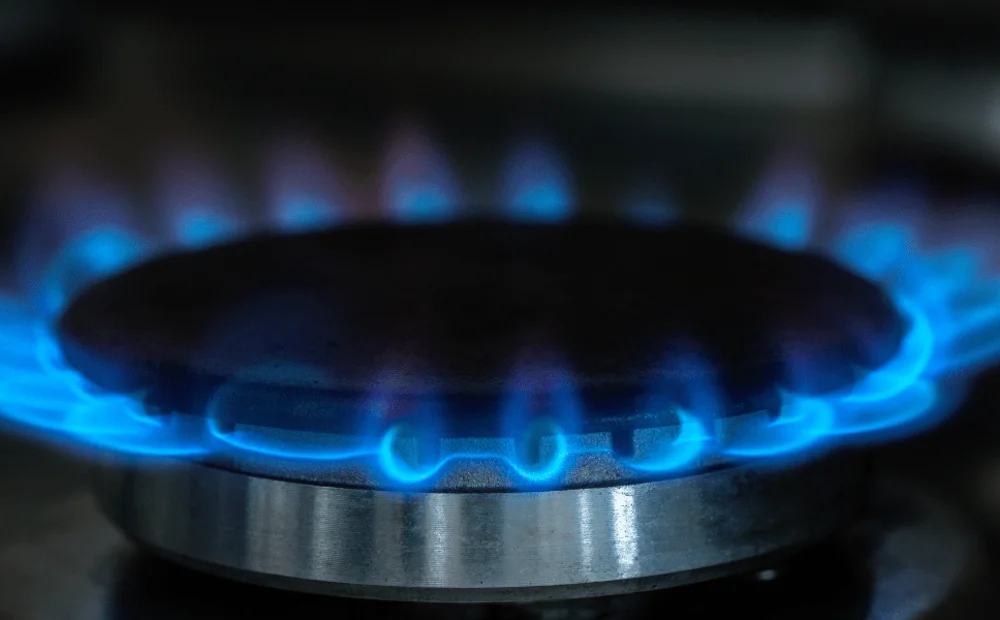Rising energy cost on financial wellbeing

With UK energy prices set to increase from April 2022 many households are, understandably, worried about the financial impact this will have on their families. In fact, even before the latest price cap announcement, a third of UK voters had expected their energy bills to become unaffordable this year.
With Covid-19 restrictions only just lifted, we have already faced two years of financial uncertainty and for those still recovering from the blow of the pandemic, this increase to the cost of living seems untenable. Both gas and energy prices are set to rise, but it’s gas that is a cause for particular concern, with a 54% increase estimated between April 2021 to April 2022.
Why are energy costs rising?
The main reasons for this dip in Europe’s energy supplies are due to a cold winter between 2020 to 2021 which increased energy usage and reduced the amount of gas stored. Then, in 2021, we faced a summer with low wind levels that decreased the ability to generate wind energy. Because of this, among other issues, the price cap that exists to help keep our energy bills manageable is now higher.
The squeeze on energy resources is a global issue that has seen prices soar to unprecedented levels. However, the UK is feeling the pressure more than many other countries as we are so heavily reliant on gas power. 85% of homes in the UK have gas central heating, and around 33% of our electricity is generated by gas. So while those who have invested in green power are reaping the benefits, many are now feeling very vulnerable.
In addition, the recent tragic developments between Ukraine and Russia will likely lead to an increase in energy prices still as evidenced by the record increases in fuel prices.
Most people are concerned
It’s not just energy prices that are on the rise either. The overall cost of living has increased in the past 12 months as clothing and food have seen a 5% inflation rate. It’s reported that inflation is now rising faster than wages and may hit 7% by the end of 2022. So, while businesses try to recoup the costs of the pandemic, it’s the customers who will likely suffer.
But while food and clothes are wide-ranging and offer plentiful options, gas and energy suppliers are harder to switch. Since the beginning of 2021, 31 energy companies have ceased trading leaving only the bigger, more established names left on the market. So, if you liked to shop around for cheaper or more environmental energy options, your choices are now far more limited.
The unemployed and those working from home are likely to be the hardest hit by these price increases, with people who rent their property especially affected. In fact, a survey by the Office of National Statistics found that 92% of people who faced increased utility bills while working from home were renters.
What can be done to offset energy bills?
The best way to tackle these rising prices is to consider ways to offset your energy usage. The average household now uses 13 electronic appliances, up from just four in 1990. However, thanks to energy-saving technology, our household usage hasn't actually increased exponentially in that time. Most energy is used between 6-9 pm.
Setting the washing machine to a lower temperature, setting your thermostat lower, and considering how long you spend in the shower are all small actions we can make day to day that save energy. Additionally, greener energy improvements such as better insulation and solar electricity generation or hot water heating, or heat pumps can all reduce costs in the long run as well as being essential as we collectively address our individual carbon footprints.
Of course, not everyone can cut their energy usage enough to see a tangible difference when it comes to their bills. Those working from home and therefore spending more time in the house than they might have been before March 2020 will see an extra strain, and people who are already frugal or who, for whatever reason, require higher energy usage to power their homes, won’t be able to do much about their situation. But there is some support available to those unable to afford the rising costs.
What support is available?
The UK Government has announced a £1.9 billion Energy Bills Rebate, which will offer up to £350 to help 28 million households cope with the rising costs. From October, all homes will receive £200 of their domestic electricity bills and from April, 80% of households will be eligible to receive a £150 Council Tax rebate. The Government has also announced that people who have continued to work from home for during the pandemic can apply for two years of tax relief worth up to £280, helping to address the increased energy prices. But for many, this support will not be enough to protect them from the devastating impact of the overall cost of living.
Naturally, the projected rise in the inflation rate has seen many workers calling for an increase in the National Living Wage. Already, wages are down 0.8% on the rate of inflation and as that number rises, workers on payroll will be the hardest hit by the increased cost of living.
But it seems the Bank of England is prioritising action to reduce inflation through interest rate rises over protecting workers’ buying power. The Bank continues to increase the rate of interest despite UK wage growth trailing the cost of living. The Bank of England’s Governor even warned employees not to ask for pay rises to try to prevent further increases.
At Great Western Credit Union (GWCU), we offer low-cost, ethical services that can be cheaper than high street banks. By banking with us, we work to create a circular economy where all the profit goes to fund local community members and businesses. We are currently helping people to finance green home improvements, including installing solar panels, heating controls and improving insulation so that they can save money in the long run.
Reducing spending in other areas, such as on high interest debt, can also free up more to cope with rises in costs elsewhere in the household budget and GWCU continues to offer debt consolidation loans that achieve just this result.
We understand that things are difficult at the moment, but together we can make a difference. By improving financial wellbeing across South West England, we can create an environment where communities thrive and people can develop good money habits.
If you would like to find out more, please email us at info@gwcu.org.uk.
